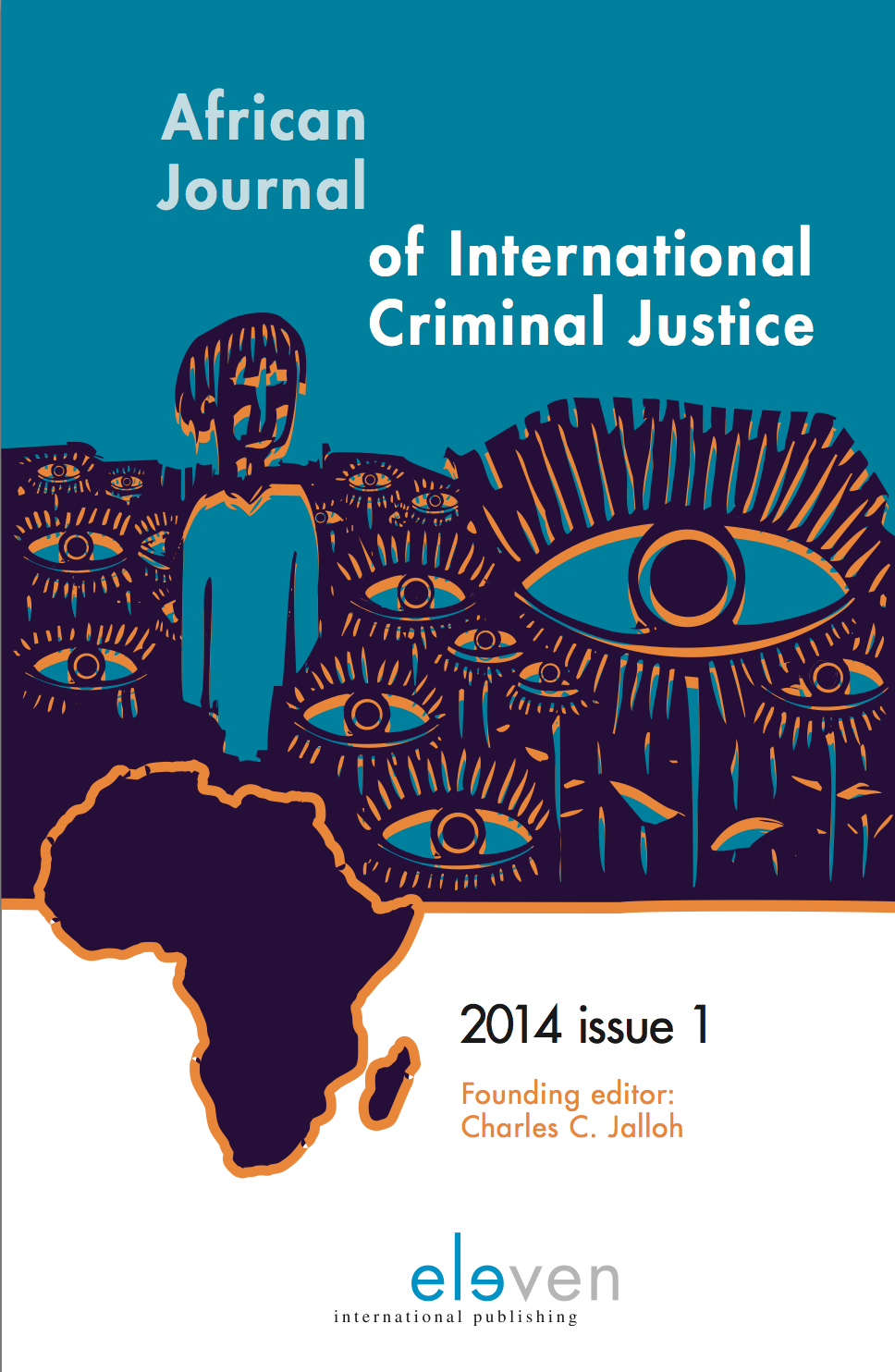|
This article critiques attempts by some in Africa to brand the International Criminal Court (ICC) as a neocolonial institution and stooge of the West. These arguments accuse the ICC of playing a double standard, being overly focused on trying African defendants, and warn that the Court risks exacerbating factionalism and ethnic divisions thereby threatening peace and reconciliation efforts. Although we neither defend nor champion the ICC’s mandate, we deem such criticisms as hyperbole. At best, they attempt to whitewash the instrumental role played by African states in the birth of the Court and ignore the fact that many of the ICC cases were referred there by African governments. Furthermore, the current African narrative understates the ICC’s potential to midwife local judiciaries and contribute positively towards conflict resolution in Africa through the promotion of at least a measure of accountability and offers of justice, thereby taming elite immunity and impunity in states where justice regimes are either weak or non-existent. Until African states strengthen their judiciaries to ensure such references to the ICC are indeed a last resort, the Court will continue to remain the only credible forum for states emerging from conflict and seeking justice and reconciliation. |


African Journal of International Criminal Justice
About this journalSubscribe to the email alerts for this journal here to receive notifications when a new issue is at your disposal.
| Editorial |
|
| Article |
|
| Keywords | International Criminal Court (ICC), security, African Union (AU), war crimes, international law |
| Authors | Brendon J. Cannon, Dominic R. Pkalya and Bosire Maragia |
| AbstractAuthor's information |
| Article |
|
| Keywords | ICC, African Court, gross human rights abuses, transitional justice, human rights |
| Authors | Ato Kwamena Onoma |
| AbstractAuthor's information |
|
Focus on whether a criminal chamber in a reformed African Court represents progress or retrogression relative to advances made in the Rome Statute shifts attention from the similar foundation of the two courts on an epochal bifurcation between the worst human rights abuses and quotidian wrongs. This bifurcation compromises our understanding of how abuses are related, what we should do about them and how we should go about studying them. It is at the core of aspects of the International Criminal Court (ICC) that have come under severe criticism. It also imperils the criminal chamber of the nascent African Court. |
| Article |
|
| Keywords | Accountability, corruption, judicial approach, jurisprudence, reforms |
| Authors | Michael Imran Kanu |
| AbstractAuthor's information |
|
The fight against corruption in Sierra Leone gained momentum, at least in terms of policy direction, following the enactment of the Anti-Corruption Act 2000 and the Amendment Act in 2008. It is considered to be one of the most robust anti-graft laws in the world and its promulgation is in recognition of the international and national resolve to fight the menace, owing to its devastating effects, especially in the Least Developed Countries (LCDs) of the world. The Anti-Corruption Act of 2000, though viewed as a tremendous move towards curtailing corruption, was riddled with shortcomings. Practitioners viewed the Act as limited in the number of proscribed offences created, coupled with the lack of independence signified by the absence of prosecutorial powers. With the enactment of the Amendment Act in 2008, it is crucial to examine the opportunities it has created to eradicate corruption. Critical also to the national and global resolve is the consideration of challenges that may have sprouted. This paper will examine some of the opportunities and challenges in the jurisprudence in the fight against corruption in Sierra Leone, with the aim of providing an avenue for reflection as well as a prompter for legislative reforms or change in judicial approach. |
| Article |
|
| Keywords | Special Tribunal for Lebanon, international criminal law, personal jurisdiction, corporate criminal liability, interpretation of Rules of Procedure and Evidence |
| Authors | Manuel J. Ventura |
| AbstractAuthor's information |
|
This case note considers two decisions from two separate Appeals Panels of the Special Tribunal for Lebanon (“STL”) which held that the STL possessed the inherent power, pursuant to its inherent jurisdiction in matters relating to contempt, to exert its ratione personae jurisdiction over legal persons – two Lebanese corporations – accused of contemptuous conduct. These decisions opened the door for the first trials of corporate defendants in the history of international criminal law. The analyses of the Appeals Panels are pertinent to unresolved debates before United States (“US”) courts on whether the US Alien Tort Statute recognizes corporate liability for violations of the law of nations; raise the issue of the proper place of the principle of legality when jurisdictional questions arise as well as the proper interpretation of the STL’s Rules of Procedure and Evidence; and also have implications for other international criminal tribunals with provisions regulating contempt of court that are similarly worded to those in place at the STL. |
| Miscellaneous |
|
| Miscellaneous |
|

 Issue 1-2
Issue 1-2